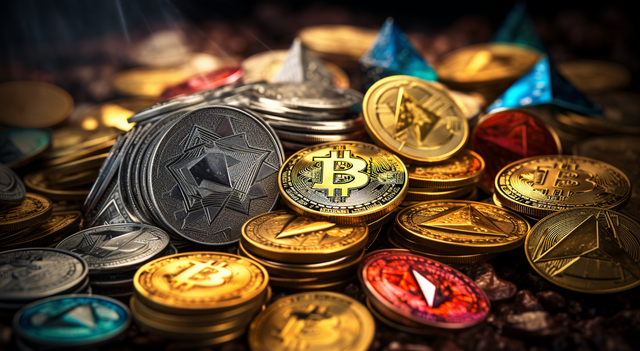What Should You Know Before Buying Cryptocurrency Mining Hardware?

Cryptocurrency mining has become a popular way for individuals to participate in the growing digital economy. Mining involves using computer hardware to solve complex mathematical problems, which in turn validates transactions on a blockchain network. As a reward for their efforts, miners receive newly minted coins. If you're considering getting into mining, here are some key factors to consider before buying cryptocurrency mining hardware.
1. Understanding Mining Hardware
Cryptocurrency mining hardware comes in various forms, but the most common types are CPUs, GPUs, and ASICs. CPUs and GPUs are general-purpose processors, while ASICs (Application-Specific Integrated Circuits) are specialized hardware designed specifically for mining. Each type of hardware has its own pros and cons, so it's important to understand the differences before making a purchase.
2. Cost of Hardware
The cost of mining hardware can vary widely depending on the type and brand. ASIC miners are generally more expensive than CPUs or GPUs but offer higher mining efficiency. It's important to consider your budget and the potential return on investment (ROI) when deciding on the right hardware for your mining operation.
3. Mining Power and Efficiency
Mining power, often measured in hashes per second (H/s), determines how quickly a miner can solve the mathematical problems required to mine cryptocurrency development. Efficiency is also crucial, as it determines how much electricity the hardware consumes while mining. Higher efficiency means lower electricity costs and higher profits.
4. Electricity Costs
Electricity is one of the biggest expenses for cryptocurrency miners. The cost of electricity can vary widely depending on your location, so it's important to consider this when calculating your potential profits. Look for hardware that offers high mining efficiency to minimize electricity costs.
5. Cooling and Maintenance
Mining hardware generates a lot of heat, so proper cooling is essential to prevent overheating and damage. Additionally, regular maintenance is necessary to ensure that your hardware is running efficiently. Consider the costs and requirements for cooling and maintenance when choosing mining hardware.
6. Noise Levels
Mining hardware can be noisy, especially ASIC miners. If noise is a concern, look for hardware that offers quiet operation or consider setting up your mining rig in a separate location.
7. Mining Difficulty
Mining difficulty refers to the complexity of the mathematical problems that miners must solve to mine cryptocurrency. As more miners join the network, the difficulty increases, making it harder to mine coins. Consider the current mining difficulty and how it may affect your mining operation in the future.
8. Future Resale Value
Cryptocurrency mining hardware depreciates over time, so it's important to consider the resale value when making a purchase. Look for hardware that holds its value well and has a strong resale market.
9. Reputation and Support
When buying mining hardware, choose a reputable manufacturer with a history of reliable products and good customer support. Research customer reviews and ratings to ensure that you're buying from a trustworthy source.
Conclusion
Before buying cryptocurrency mining hardware, consider factors such as the type of hardware, cost, mining power and efficiency, electricity costs, cooling and maintenance requirements, noise levels, mining difficulty, future resale value, and the reputation of the manufacturer. By carefully evaluating these factors, you can make an informed decision and maximize your chances of success in the world of cryptocurrency mining.